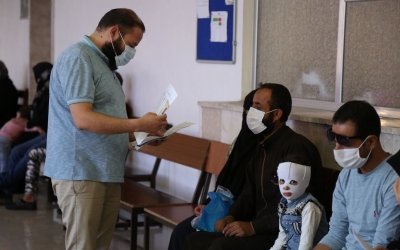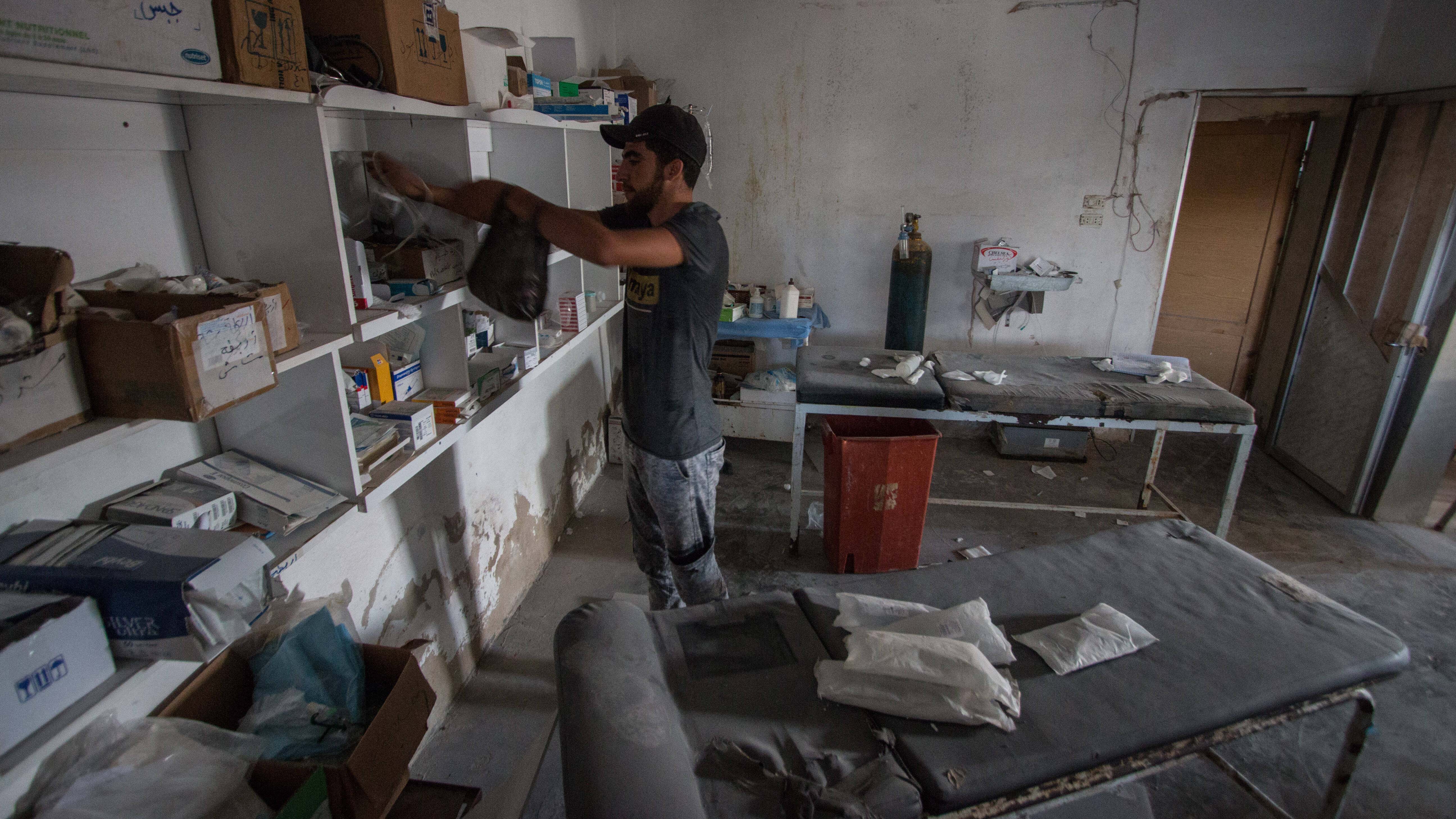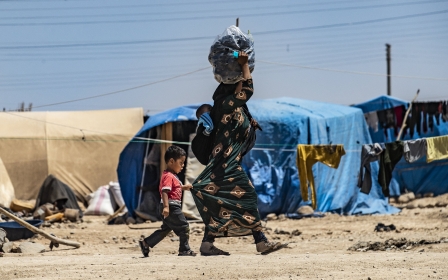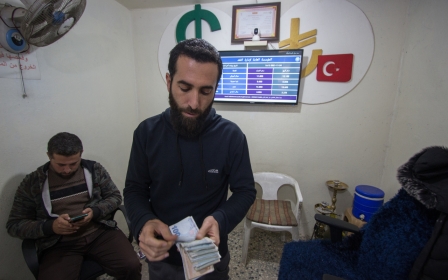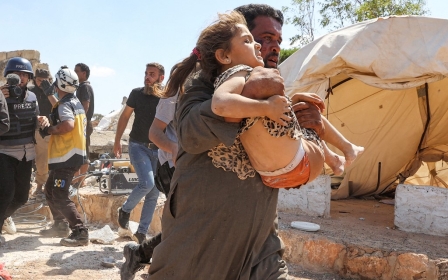Syria: Health care system in Idlib faces ‘catastrophic consequences’ after funding cuts
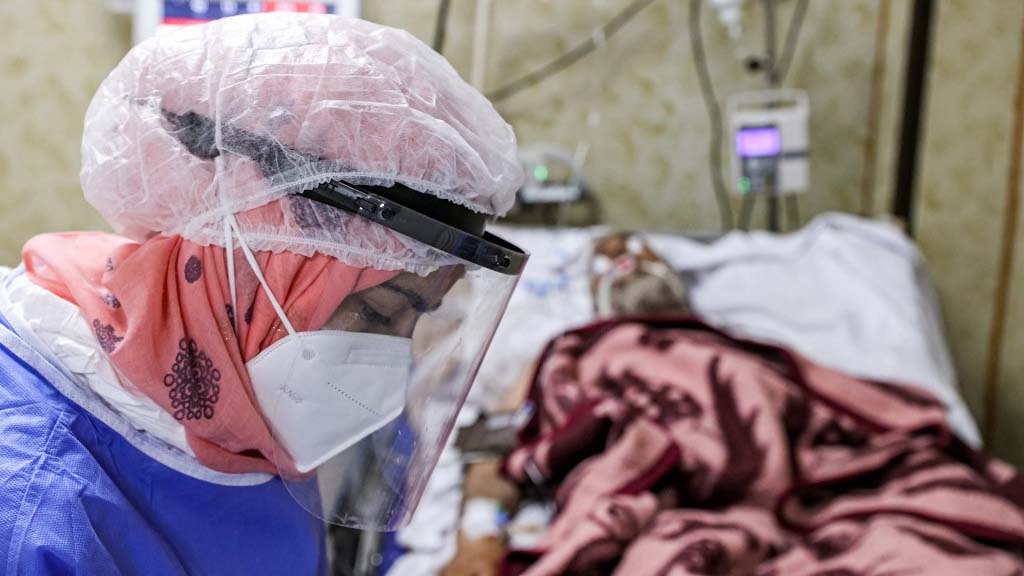
Hospitals in Idlib are threatened with closure as funding dwindles, putting millions of Syrians at risk, health authorities have warned.
Some 18 health facilities have been forced to scale down their operations in recent months after aid contracts ended, according to the Idlib Health Directorate (IHD).
Dr Salem Abdan, director of the IHD, told Middle East Eye that a number of international and local humanitarian groups have not renewed aid packages which caused the recent shortage of resources.
Medical aid in northwestern Syria comes in the form of humanitarian projects, which are renewed every six to 24 months, Abdan told MEE. By the end of 2021, many contracts had run out and had not been extended.
The reason why contracts have stopped is unclear, but the new year often marks the end of funding cycles.
“We are working... to secure new support for these hospitals to continue providing their services to civilians in northern Syria,” Abdan said.
The reduction of services has affected medical centres in Idlib city, Salqin, Harem, Jericho, Atma and Kelli. According to Abdan, an estimated 50,000 people per month will be impacted.
Al-Dakhiliyah specialised hospital in Idlib, which serves 9,400 people per month, had to cut down most of its operations, according to medical coordinator Basel Sabag.
“Our occupancy rate does not exceed 20 percent due to the lack of many medicines and medical materials,” Sabag said.
Funding cuts have forced hospital staff to work without pay and with minimal resources.
Departments that have been forced to close down include internal medicine, paediatric care, gynaecological and reproductive health and ambulance response, among others, doctors told MEE.
“We are ready to provide the service voluntarily,” Dr Muhammad Obeid of al-Dakhiliya Hospital told MEE.
“[But] the lack of medicines and logistics has affected me and the souls of all medical staff,” he added.
“We are unable to provide the service in an integrated manner to patients.”
Brink of collapse
The fragile healthcare system in northwest Syria, already strained from years of war, has been stretched since the outbreak of the Covid pandemic.
A further cutback in operations due to lack of funding could push it to the brink of collapse, local medics and NGOs have warned.
“We warn all parties of the catastrophic consequences of stopping the support provided to the medical sector,” Response Coordination Group said in a statement last week.
Hospitals in northwest Syria, the country's last major opposition enclave, have been repeatedly targeted with attacks since the start of the conflict in 2011.
Of the 602 confirmed attacks on at least 350 different health care facilities in Syria since 2011, 149 have been in Idlib, according to Physicians for Human Rights (PHR).
More than 90 percent of all attacks on healthcare facilities were allegedly carried out by Assad forces and their allies, including Russia, according to the rights group.
Northwest Syria is home to 4.4 million people, including more than 2 million who are internally displaced, according to UN figures. Almost 70 percent of the population are in acute need of humanitarian assistance.
Cross-border humanitarian aid enters northwest Syria solely through Bab al-Hawa crossing on the Turkish border. Last week, cross-border aid into Idlib was de facto extended by the UN until 10 July 2022.
In December, PHR produced a report on the health crisis in northern Syria, saying that government attacks and “attempts to impede the delivery of humanitarian aid have driven the creation of a patchwork of health systems that has produced deep disparities in access to care, effectively denying people’s right to health.”
The rights group urged international donors to commit to providing aid in Syria where the population “arguably needs a functioning health care system more than ever before.”
Middle East Eye delivers independent and unrivalled coverage and analysis of the Middle East, North Africa and beyond. To learn more about republishing this content and the associated fees, please fill out this form. More about MEE can be found here.


